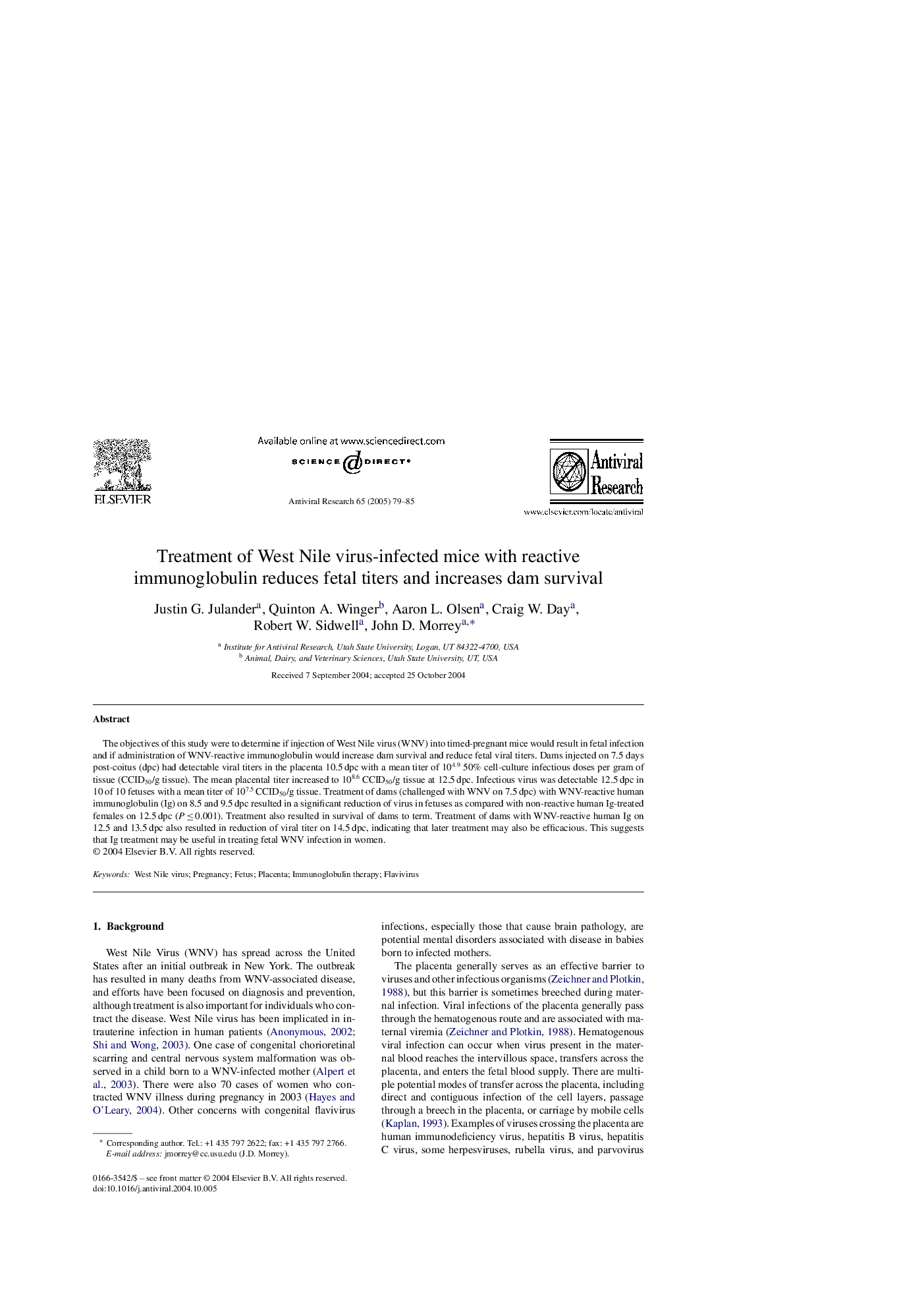| Article ID | Journal | Published Year | Pages | File Type |
|---|---|---|---|---|
| 9000963 | Antiviral Research | 2005 | 7 Pages |
Abstract
The objectives of this study were to determine if injection of West Nile virus (WNV) into timed-pregnant mice would result in fetal infection and if administration of WNV-reactive immunoglobulin would increase dam survival and reduce fetal viral titers. Dams injected on 7.5 days post-coitus (dpc) had detectable viral titers in the placenta 10.5 dpc with a mean titer of 104.9 50% cell-culture infectious doses per gram of tissue (CCID50/g tissue). The mean placental titer increased to 108.6 CCID50/g tissue at 12.5 dpc. Infectious virus was detectable 12.5 dpc in 10 of 10 fetuses with a mean titer of 107.5 CCID50/g tissue. Treatment of dams (challenged with WNV on 7.5 dpc) with WNV-reactive human immunoglobulin (Ig) on 8.5 and 9.5 dpc resulted in a significant reduction of virus in fetuses as compared with non-reactive human Ig-treated females on 12.5 dpc (P â¤Â 0.001). Treatment also resulted in survival of dams to term. Treatment of dams with WNV-reactive human Ig on 12.5 and 13.5 dpc also resulted in reduction of viral titer on 14.5 dpc, indicating that later treatment may also be efficacious. This suggests that Ig treatment may be useful in treating fetal WNV infection in women.
Related Topics
Life Sciences
Immunology and Microbiology
Virology
Authors
Justin G. Julander, Quinton A. Winger, Aaron L. Olsen, Craig W. Day, Robert W. Sidwell, John D. Morrey,
